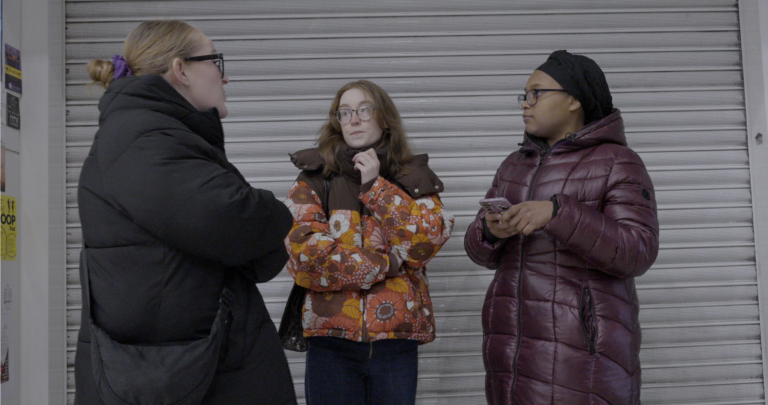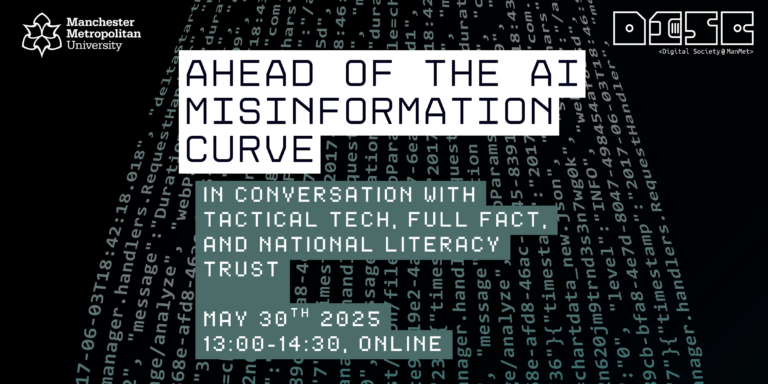Conversations with History: Past, Present and Futures of Manchester’s Art Ecology
Dani Child, Senior Lecturer in Art History brings together historians and creatives working in Manchester and local regions on the occasions of the 200 year anniversaries of Manchester Art Gallery and Manchester Met and the 40th anniversary of Castlefield Gallery for two public events. These events initiated important conversations about the past, present and future of Manchester (and the North)’s art ecology.

Dani Child, Senior Lecturer in Art History
As a contemporary art historian and theorist, my research focusses on the relationship between contemporary art and capitalism through the lens of work and labour.
In my research, I adopt an historical materialist approach to explore the relationship between contemporary art and capitalism through the lens of labour. This interest includes social (collective, participatory and public) artistic practices, contracted labour (the ‘invisible hands’ of production) in art, and contemporary art and social class. I am currently co-Lead (with Dave Beech, Chelsea College) on the AHRC-funded Mapping Creative Labour in Contemporary Art network and am co-host (with Sarah Scarsbrook) of the podcast Classed Acts. The podcast brings together guests from Creative/Higher Education (CHE) and the Creative and Cultural Industries (CCIs) to ask what are the experiences and perspectives of working-class graduates and teachers in CHE? I am author of Working Aesthetics: Labour, Art and Capitalism (Bloomsbury, 2019) and am currently working, as editor, on The Routledge Companion to Art and Capitalism.
AHEAD funding has helped to bring together historians and creatives working in Manchester and local regions on the occasions of the 200 year anniversaries of Manchester Art Gallery and Manchester Met and the 40th anniversary of Castlefield Gallery for two public events. These events initiated important conversations about the past, present and future of Manchester (and the North)’s art ecology.
The first event took place at Manchester Art Gallery and brought together Hannah Williamson (Curator Fine Art, MAG), Dr Rebecca Wade (Associate Curator, Special Collections University of Leeds and Thomas Dukes (Curator and Doctoral Student at ManMet and Castlefield Gallery) to talk about the origins and histories of Manchester Art Gallery, Leeds City Art Gallery and Castlefield Galleries. We heard about the histories of marginalised artists (the founders of Manchester Art Gallery and Manchester Society of Women Painters, for example) and the formation of artist-led institutions. These histories serve as a prompt for discussing both current and future initiatives that aim to amplify less visible or peripheral voices in the art world today, including artist-led groups and organisations in Manchester and neighbouring regions.






Held at Castlefield Gallery, the second event takes the form of a public conversation between five creatives in Manchester and the North region: Thomas Griffiths (Artist and co-director and curator of GLOAM, Sheffield), Jo McGonigal (Artist and Fine Art lecturer, University of Leeds); Rachel Goodyear (Artist and co-director of Islington Mill, Salford); Yuen Fong Ling (Artist and curator based at Bloc Studios Sheffield, Senior Lecturer in Fine Art and Post Graduate Research Tutor, Sheffield Hallam University) and Kay Shah (Artist and member of DMZ studios). At a time in which support for the arts is being reduced, this event invites us to consider the continued need for these kinds of groups and spaces in our contemporary social, economic and political context. We ask: What has changed since the founding of Manchester Art Gallery and Castlefield Gallery, respectively? How have artists looking for spaces that fulfil their needs shaped the city? What role do art institutions play within Manchester’s art ecology today? And what the future for artists in our city and surrounding regions could or should look like?
Recommended reading:
Brook, O’Brien and Taylor, Culture is Bad for You: Inequality in the Cultural and Creative Industries (Manchester: Manchester University Press: 2020).
Ravi Ghosh, ‘How Can We Make the Art World Less Elitist?’, Elephant, 4/08/21, https://elephant.art/can-we-make-the-art-world-less-elitist-04082021/
Podcast: Classed Acts (available on Spotify and Amazon) Maps onto Championing


